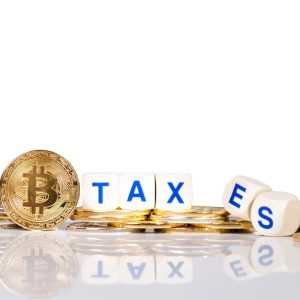Latest Posts
40% surge in UK crypto ownership spurs HMRC crackdown: What You Need to Know
Read MoreHow the political shifts in 2024 could reshape crypto tax policies in 2025
Read MoreGary Gensler steps down as SEC Chair – what’s next for crypto?
Read MoreUK plans to integrate crypto into finance
Read MoreWhat Trump’s win could mean for crypto
Read MoreContent
Introduction
Brazil is making waves in the world of cryptocurrencies as its Congress moves forward with legislation that aims to raise taxes on cryptocurrencies held overseas.
If approved, this new legislation could have significant implications for the crypto investment landscape in the country.
What’s the fuss about?
The key highlight of this proposed legislation is its recognition of cryptocurrencies as “financial assets” for tax purposes in foreign investments.
This means that gains from fluctuations in crypto asset prices against Brazil’s fiat currency, as well as foreign exchange rate fluctuations, would be subject to taxation.
Deputy Merlong Solano, the driving force behind this amendment, emphasizes that the goal is to promote equal tax treatment.
Currently, investments in cryptocurrencies held abroad receive lower tax breaks compared to traditional assets. The proposed changes aim to level the playing field.
Crypto tax tears… and tiers
Under these new rules, there will be a tiered tax system. Overseas earnings of up to 6,000 Brazilian reais (approximately $1,200) would be exempt from taxation.
Earnings ranging from 6,000 to 50,000 reais (around $10,000) would face a 15% tax rate.
For gains above this threshold, the tax rate would increase to 22.5%.
Boom for local exchanges?
It’s important to note that these changes would primarily apply to cryptocurrency exchanges without offices in Brazil.
This detail could have interesting implications for the local crypto exchange landscape.
The new rules might make local exchanges a more attractive option for investors, especially those with gains that surpass the top tax bracket.
Additionally, this legislation could lead to increased crypto exchange activity within the country and might even encourage foreign players to set up offices in Brazil.
Bust for global exchanges?
As of now, a variety of global crypto exchanges operate in Brazil, such as Binance, Coinbase, Bitso, Crypto.com, alongside local players like Mercado Bitcoin and Foxbit.
These exchanges are closely monitoring the situation, as the outcome of this legislation could shape their future operations in the country.
Next steps
The decision on this bill will be made by Brazil’s National Congress on August 28th. If the bill is given the green light, the new taxation rules will come into effect in January 2024.
This gives investors and exchanges some time to adjust their strategies accordingly.
This move comes at a time when Brazil has been witnessing rapid growth in crypto-related activities.
The country’s central bank has recently rebranded its central bank digital currency as Drex. With the introduction of Drex, the central bank aims to introduce a tokenization system that will expand business access to capital.
Conclusion
The outcome of this legislation will undoubtedly impact Brazil’s crypto investment landscape, shaping how investors, exchanges, and international players engage with cryptocurrencies within the country.
Stay tuned for the results of the Congressional vote on August 28th to see how this dynamic story unfolds.






